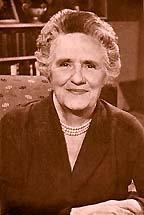
Spiritualism as a religious movement was a varied set of beliefs and practices related to the conviction that the living and the dead could be in meaningful communication. It flourished in the second half of the 19th century and considerably affected both Universalism and Unitarianism at the time.In 1848 three young sisters, Margaret, Kate and Leah Fox, generated public excitement with their claim to have contacted spirits of the dead through telegraphic rapping in their home near Rochester. From the Fox sisters' experience came the pattern for the séance, or spirit circle. Soon many "mediums," especially sensitive to "impressions" from spirits, guided hopeful participants.
Modern Spiritualism;
Modern Spiritualism emerged against this background of rational enquiry following some strange happenings in Hydesville, a small town in New York state in America. A family named Fox moved into a house in the town where unexplained noises were reported by previous tenants. When this happened during the Fox's tenancy, the youngest daughter challenged whoever or whatever was making the tapping to repeat the number of times she clicked her fingers. Subsequently, by using a series of codes created by the girl and her elder sisters, answering raps provided the information that the house was inhabited by the spirit of a man who had been murdered there.
Acceptance of Spiritualism;
A number of famous mediums were quickly accepted into high society. The two Fox girls were very profitably managed by their elder sister, and other mediums too benefited personally from the exercise of their abilities. Seances, as the spiritualist gatherings were called, grew more and more elaborate. One very well known medium, Daniel Douglas Home, presided over gatherings where tables moved apparently by themselves, where he was able without injury to hold red hot coals in his hand, and even to levitate off the ground and float in and out of windows. He was feted at many of the European royal courts. A great stimulus to the general acceptance of modern spiritualism was provided by Queen Victoria's interest – an interest generated by the loss of her husband Prince Albert. Shortly afterwards, with the enormous loss of life in the great wars of the twentieth century, men and women bereaved of their loved ones tried to get in touch with those who died in order to obtain messages of comfort and advice, just as they did when their relative or friend was alive. This is perfectly understandable. Human relationships form an important part of each person's life, and when death intervenes, those who are left alone naturally feel the need to continue the communication they previously enjoyed, if at all possible.



